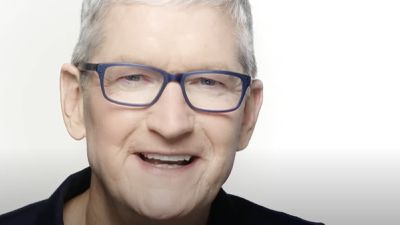
Speaking at Università Degli Studi di Napoli Federico II in Naples, Italy, Apple CEO Tim Cook said that not too long from today, people will wonder how they led a life without augmented reality, stressing the "profound" impact it will have on the not so distant future.
At the university, Cook was awarded an Honorary Degree in Innovation and International Management and also sat down for a Q&A session with students. Responding to a question from a student on what future technologies excite him the most, Cook pointed to artificial intelligence, calling it a "fundamental, horizontal technology that will touch everything in our lives," ranging from innovations in the Apple Watch to "many other things" Apple is working on.
Cook, more importantly, stressed his excitement for augmented reality. Cook suggested that augmented reality's impact on the world will be as profound as the internet itself, saying people will wonder how they led a life without it. As he was speaking on augmented reality, the live stream of the Q&A session abruptly cut, so Cook's full comment on the subject is not publicly known. READ MORE...

